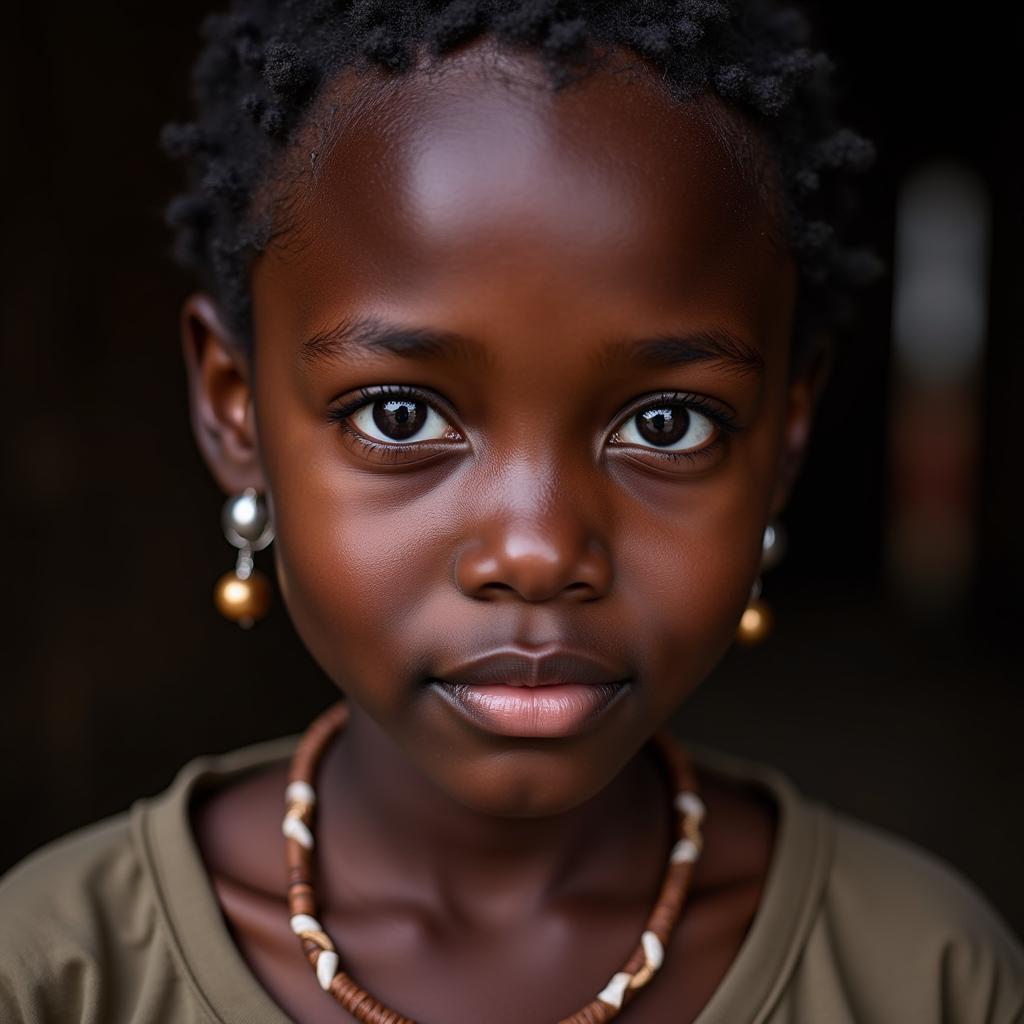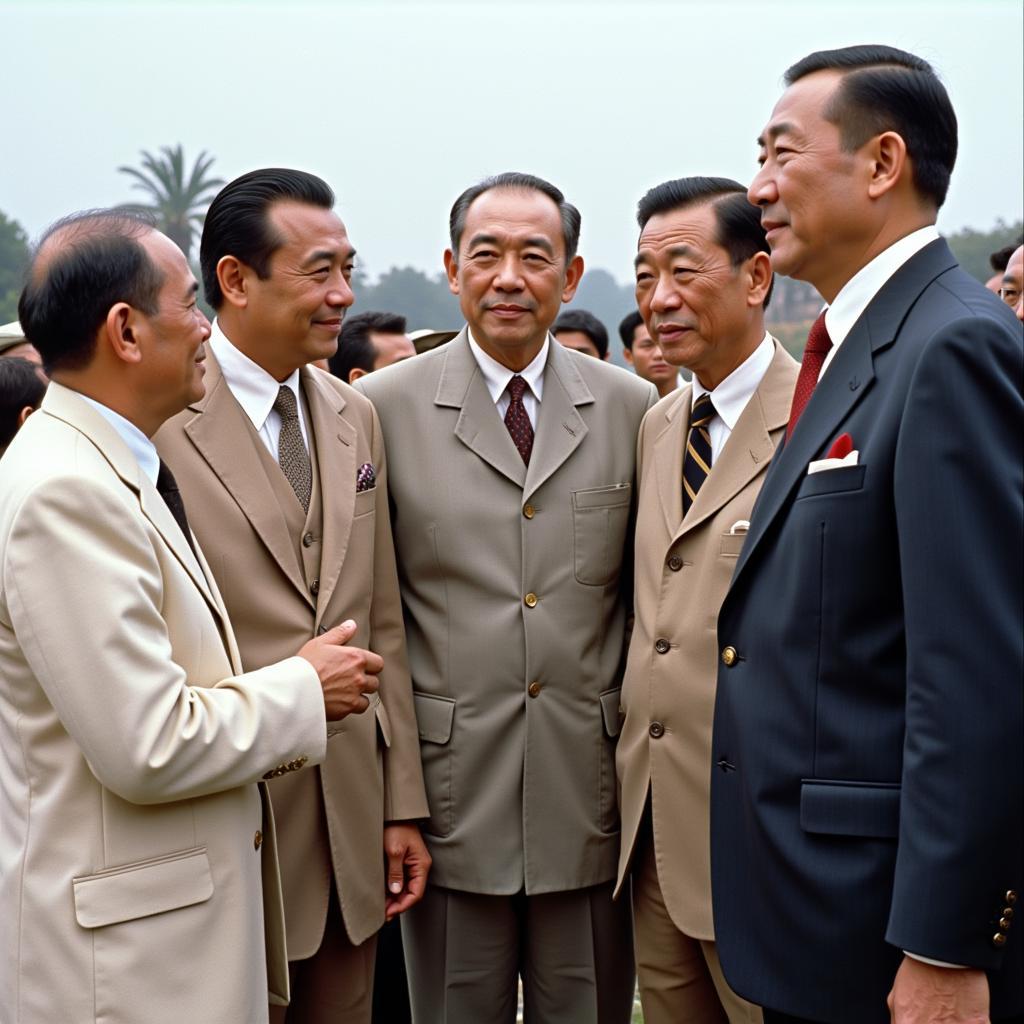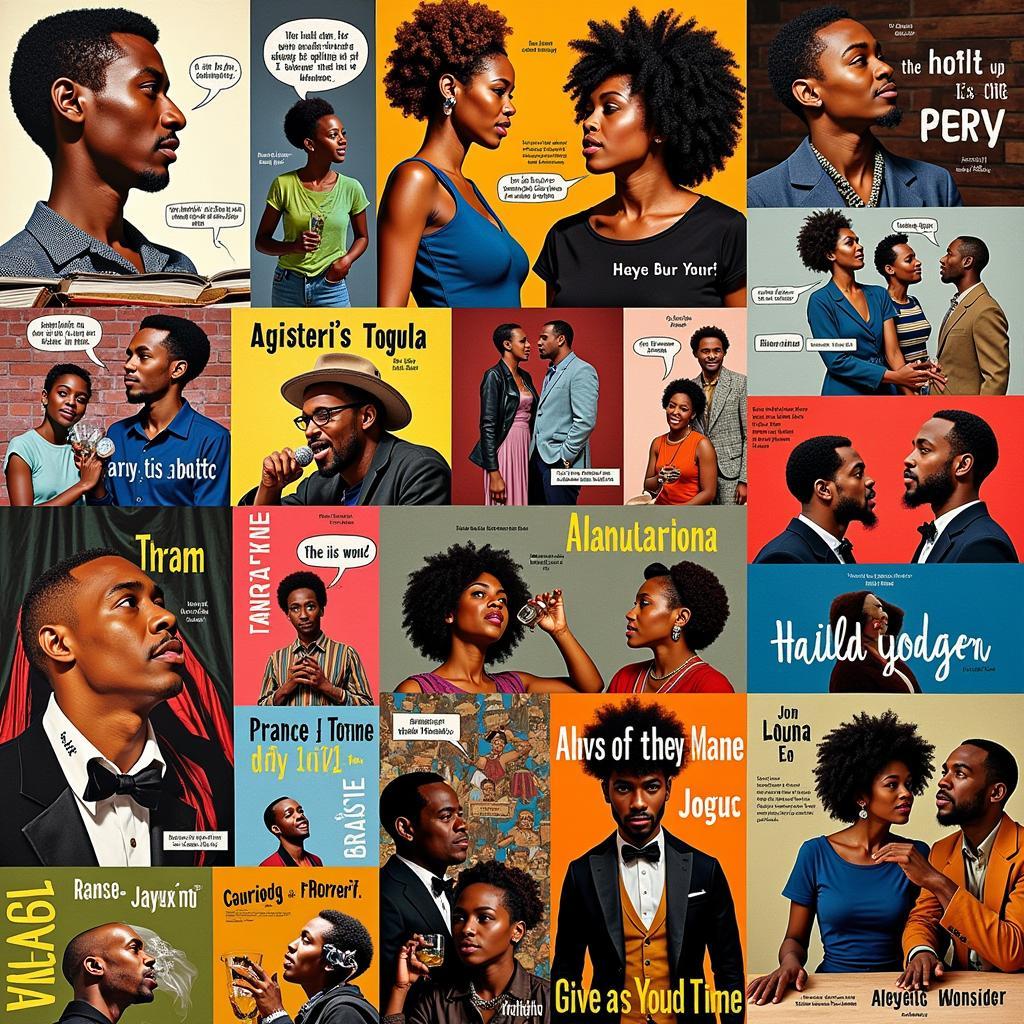Unveiling the Story of the African Chocolate Girl
The term “African Chocolate Girl” often evokes images of beauty, resilience, and cultural richness. This article delves deeper into the complexities and nuances associated with this term, exploring its representation in art, literature, and everyday life, while acknowledging the potential for misinterpretation and harmful stereotyping.
Beyond the Surface: Understanding the “African Chocolate Girl”
The phrase “African chocolate girl” can be problematic. While it might be used with positive intentions to celebrate the beauty of dark-skinned African women, it can also be seen as objectifying and reducing individuals to their skin color. It’s crucial to recognize the diversity within Africa and avoid generalizing a continent of over a billion people.  Portrait of a young African girl with captivating eyes and radiant dark skin. We must be mindful of the potential for this term to perpetuate harmful stereotypes and the importance of appreciating the individuality of every person. Understanding the historical context and cultural nuances is vital to using this term responsibly, if at all.
Portrait of a young African girl with captivating eyes and radiant dark skin. We must be mindful of the potential for this term to perpetuate harmful stereotypes and the importance of appreciating the individuality of every person. Understanding the historical context and cultural nuances is vital to using this term responsibly, if at all.
The Portrayal of African Women in Art and Literature
African women have long been subjects of artistic expression, both within Africa and beyond. From ancient Egyptian art to contemporary photography, their image has been captured in various forms. However, representation hasn’t always been accurate or respectful. Historically, Western perspectives have often exoticized and fetishized African women, perpetuating harmful stereotypes. It’s essential to critically analyze these portrayals and understand the underlying biases that might be present. The emergence of African artists and writers has been crucial in reclaiming the narrative and presenting authentic representations of African women.
Challenging Stereotypes and Celebrating Diversity
The diversity of African cultures is reflected in the diverse portrayals of women across the continent. From the nomadic cultures of North Africa to the vibrant traditions of West and East Africa, the experiences and roles of women vary significantly. It’s crucial to move beyond simplistic and homogenized depictions and embrace the richness and complexity of African womanhood. african black baby photo We must challenge stereotypes and celebrate the diverse identities and experiences of African women. This involves supporting African artists, writers, and storytellers who are sharing authentic narratives.
The Power of Representation: Moving Beyond the “Chocolate” Metaphor
While the term “chocolate girl” might be used with good intentions, it’s important to consider the implications of reducing individuals to their skin color. What does it truly mean to appreciate someone’s beauty and cultural richness? It’s about recognizing their individuality, their strength, their resilience, and their contributions to society. african beautie heroins photos It’s about valuing their stories and their experiences. We must strive for a more nuanced and respectful way of representing African women, one that goes beyond simplistic metaphors and celebrates their full humanity.
Who are some prominent African female figures?
Throughout history, African women have played crucial roles in their communities, contributing to advancements in various fields. From political leaders like Wangari Maathai, the Nobel Peace Prize laureate and environmental activist, to literary giants like Chimamanda Ngozi Adichie, known for her powerful storytelling and advocacy for women’s rights, these women have shattered glass ceilings and inspired generations. Their stories exemplify the strength, resilience, and intellect of African women.
 A collage featuring prominent African women in leadership and artistic roles.
A collage featuring prominent African women in leadership and artistic roles.
Conclusion: Embracing Authenticity and Respect
The term “African chocolate girl” requires careful consideration. While it may be intended as a compliment, it carries the risk of perpetuating harmful stereotypes. It is essential to move beyond superficial labels and appreciate the diverse beauty and rich cultural heritage of African women. Let’s embrace authenticity, respect, and a more nuanced understanding of the individuals who make up this vibrant continent.
FAQ
- What are some common misconceptions about African women?
- How can we promote more accurate representations of African women in media?
- What are some resources for learning more about African cultures and history?
- How can I support African artists and creatives?
- Why is it important to avoid generalizations about Africa?
- What are some examples of harmful stereotypes about African women?
- How can we celebrate the diversity of African cultures?
Further Exploration
Explore other articles on our website related to African culture, art, and the experiences of African women.
Need Help?
When you need support, please contact us:
Phone Number: +255768904061
Email: kaka.mag@gmail.com
Address: Mbarali DC Mawindi, Kangaga, Tanzania.
We have a 24/7 customer support team.

